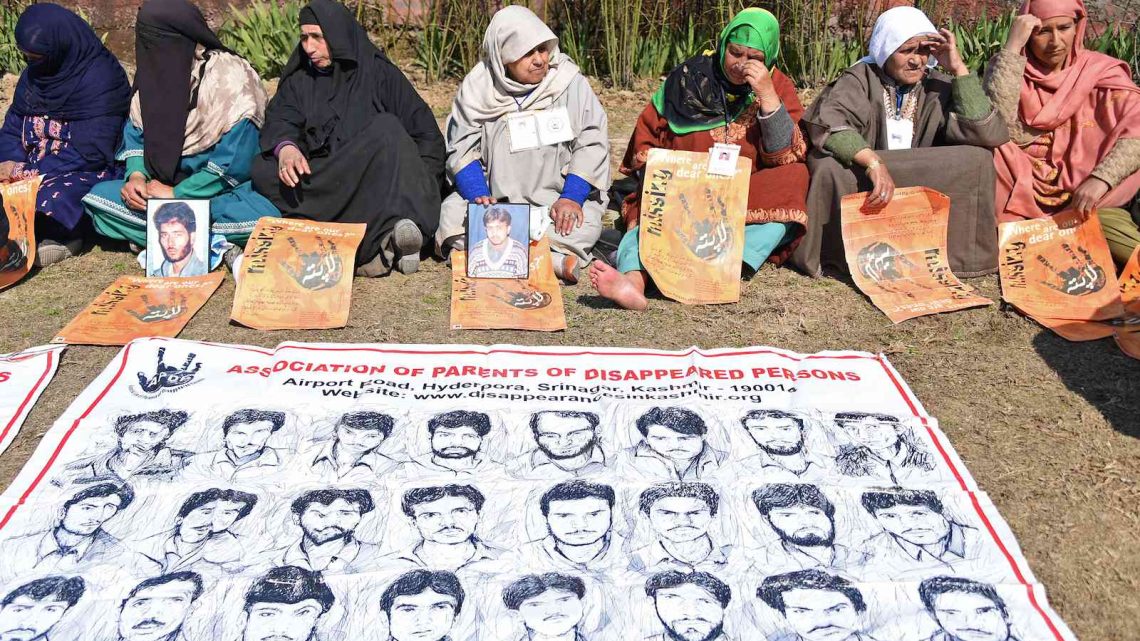
Kashmiri Mothers’ Heartache: Waiting for Sons Lost to Enforced Disappearances
May 13, 2024As the world has just observed International Mother’s Day, thousands of Kashmiri women endure the agony of waiting for the return of their sons, who have been subjected to enforced disappearance by Indian troops in occupied Jammu and Kashmir. The day, meant to celebrate maternal love and sacrifice, served as a painful reminder of the relentless suffering endured by Kashmiri mothers.
The harrowing reality of Indian state terrorism in the region is starkly evident in the staggering toll it has taken on Kashmiri families. Since 1989, an estimated 96,300 Kashmiris, including women and children, have fallen victim to this violence. Among the tragic statistics are 22,974 widowed women and 11,263 who have been raped, disgraced, or molested at the hands of Indian forces.
Mothers, wives, and daughters of illegally detained activists, leaders, journalists, and human rights defenders express grave concern over the well-being of their loved ones languishing in Indian and IIOJK jails. The plight of over three dozen women, including prominent figures like Aasiya Andrabi and Naheeda Nasreen, detained on false charges in notorious facilities like Tihar jail, underscores the arbitrary nature of these detentions.
The anguish of Kashmiri mothers is compounded by the phenomenon of custodial disappearances, with approximately 8,000 Kashmiris vanishing into thin air while in custody. For the majority of these disappeared individuals, their mothers are left in a perpetual state of limbo, yearning for their return.
Despite the international recognition of Mother’s Day as a day of tribute to maternal love and sacrifice, Kashmiri mothers bear the brunt of Indian state terrorism. They have endured the ultimate loss, with many losing their sons to Indian bullets, enforced disappearances, or arbitrary detentions.
Tragically, several Kashmiri mothers have passed away in their tireless pursuit of justice for their missing sons. Denied the opportunity to mourn their children’s deaths or bury them according to their wishes, these mothers have suffered immeasurable grief and injustice.
The stories of Haseena Begum, Mahtaba Begum, Misra Begum, Hameeda Parveen, Zoona Begum, and Haleema Begum, among countless others, serve as poignant reminders of the human cost of conflict in Kashmir. Their relentless quest for truth and justice often met with indifference or hostility, demands attention and action from the international community.
As the world has just celebrated maternal love and resilience, it is imperative that the United Nations and other global bodies prioritize the plight of Kashmiri mothers. Their suffering must not go unnoticed or unaddressed, and efforts must be made to bring an end to the cycle of violence and injustice plaguing the region.

